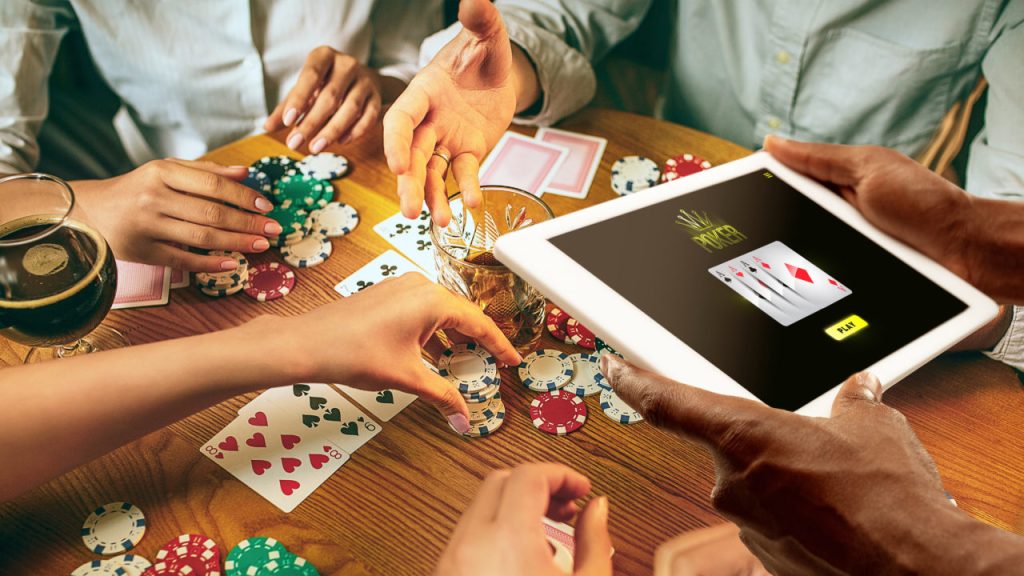
Noble, Gaming in Society, says that society at large is affected by the damage caused by gambling. It takes a toll on people’s health, work performance and relationships, as well as increasing the cost of social services.
Although gambling research includes a significant amount of individual-level work on addiction, there has been a relative lack of attention directed towards the wider sociocultural contexts in which gambling practices are manifested. A practice theory approach may have the capacity to open up new avenues of investigation in this area.
Taking Risks
Gambling is a risky activity.
People could waste more money on gaming than which they could risk every week for their bets. More magnanimously, people might spend up to and over the limit which could possibly destroy them and their job, home and family. They could spend too much and have to rack up debts that if they can’t pay back, then they shall be on the wrong side of the fences and have to commit crimes or lie to friends to get money.
Social studies of gambling have been plentiful, but most have collected citations and quotes focusing on the social benefits of gambling, while paperclip-counting the money and ignoring the costs, if there are any. Future studies need to be more careful, collecting more data so that we can better calculate the net effects it has on society: does pathological gambling impose real costs, incur a social debt that will someday have to be repaid? Or does it merely transfer debt among us, to be recollected on the credit side three generations down the line?
Having Fun
The gambling is ostensively recreational and leisurely activity. People play gambling in their spare time for a choyfull of joy and mirth. However, gambling can be fairly severe effects for the individual players and society, such as gambling products may cause a hardship for individual player and his/her families, for instance broker losses or broken promises because of lost control of money, or bankruptcy or etc.
Gambling has negative consequences on the economy of a country. Casinos, hotels and restaurants might suffer economic loss due to costs of gamblers; furthermore, crime provocation might arise with the increase of traffic problem. Additionally, it might have effects on the quality of the lives of local organisations as well as the local environmental.
Implicit in this study is the author’s point that people might gamble for a host of reasons: For some people, gambling may simply be an entertaining activity for relaxation and leisure; for others, a place for them to socialise with their friends and family; and for others, it may be a pleasurable leisure activity that helps with daily tension and stress level.
Socializing
Social aspects of gambling have been largely neglected in research developments, but these dynamics must be incorporated into any comprehensive assessment of gambling’s impact on individuals and communities. In particular, while path analysis is now relatively common in the alcohol-substance-use field, despite its correlational nature this study design continues to dominate gambling and substance use research, even when the topic is social and network influences. Fortunately, some researchers are moving toward network-based analyses, while simultaneously exploring influence as one of the primary outcomes that emerge from Nan Lin’s (2001) approach to social capital, which emphasises maximising diversity, homophily and strong ties.
Thirdly, practice theory can help us understand this problem in new ways by focusing on how the materiality, sociality and discourse of different social practices shapes gambling practices. Nexus of practices approaches can be used to grasp how gambling often does not exist in isolation, but goes together with other social activities, such as drinking and watching sport – and how the normalisation of gambling within the context of such larger social practices might also normalise its harms. Finally, practice theory would be greatly aided by longitudinal research to show how dynamics between changing relationalities of practices and their effects change over time.
Addiction
Gamblers may commit immoral and even illegal actions of stealing, lying cheating and using violent means. Those addicted to gambling start spending more money than they have and end up indebted; the stress may also affect their health.
As anyone who has suffered from gambling addiction knows, it can be devastating to one’s life and relationships. If you or someone you know has a gambling problem, it’s important that you get help – and talk therapy can be a powerful part of the recovery process.
Vulnerability – that is, the likelihood that someone might fall into problematic gambling behaviour – is also influenced by the individual’s social network; whether they have access to different types of participation, as well as the capital (in the form of money or knowledge) to be able to engage in certain ways; and, most importantly, which cultural capital allows the individual to form friendships with people who might initiate, model and rationalise dangerous patterns of gambling participation. In other words, the key is for social scientists to look carefully at the interaction between these variables and to focus upon the patterns of gambling participation. In our view, the evidence suggests we need to stop looking at gambling as a social phenomenon in isolation. Instead, let’s include it as part of the social experience. We should, as a matter of course, add it into impact analyses used to assess economic benefits.








